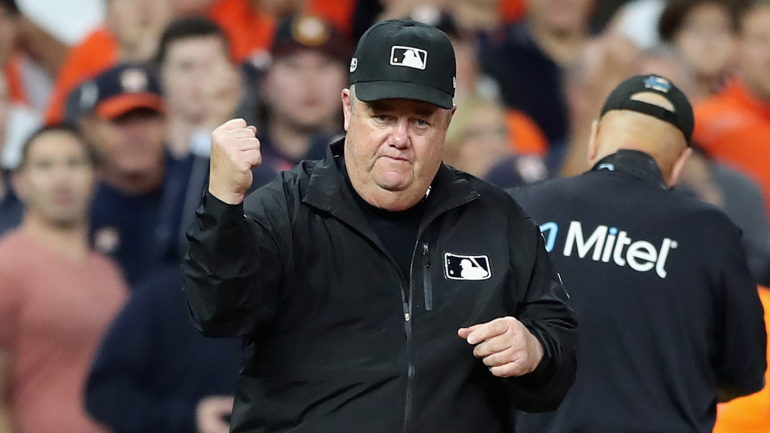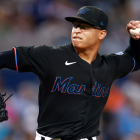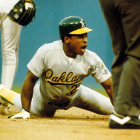
Each offseason, the Baseball Hall of Fame holds two separate elections for new inductees. There's the widely followed BBWAA vote that includes players who have been retired for at least five years (here's what to know about this year's ballot). There's also the lesser-known vote that is now done with "Era" committees. It used to be called the Veterans Committee and there have been many different versions of this over the years.
The non-BBWAA vote this time around is the Contemporary Baseball Era Committee and on the ballot are eight former managers, executives and/or umpires.
A 16-person panel will vote on the candidates. Each voter is maxed out at three choices and a candidate needs at least 12 votes to get into the Hall of Fame, so we can't expect a robust class here.
The candidates:
- Umpires: Ed Montague, Joe West
- Managers: Cito Gaston, Davey Johnson, Jim Leyland, Lou Piniella
- Executives: Hank Peters, Bill White
Here are quick bulletpoints on each candidate. Now, a preview in the form of five questions ...
Which manager(s) rank the highest?
So much more goes into which managers belong in the Hall of Fame than just the stats, but let's take a quick look at the numbers of the four skippers on this ballot:
| Manager | W-L | W-L% | Playoff W-L | Pennants | World Series Titles |
|---|---|---|---|---|---|
Cito Gaston | 894-837 | .516 | 18-16 | 2 | 2 |
Davey Johnson | 1372-1071 | .562 | 25-26 | 1 | 1 |
Jim Leyland | 1769-1728 | .506 | 44-40 | 3 | 1 |
Lou Piniella | 1835-1713 | .517 | 23-27 | 1 | 1 |
Further context behind the numbers follows.
Gaston: He was the first Black manager to ever win a World Series title. In only four playoff berths, he's the only manager here with multiple World Series titles. Those are the only two pennants in Blue Jays history and Gaston won four division titles in his first five years.
Johnson: He won division titles with four different teams, including the first-ever NL East title for the Nationals franchise. There is nothing in the rules that says the committee cannot consider playing days as a bonus for any candidate and Johnson was a four-time All-Star and three-time Gold Glover as a player.
Leyland: He ranks 18th all-time in manager wins and is tied for seventh in postseason wins. He took over a bad team in Pittsburgh before winning three straight division titles, after which the Pirates started a historic streak of sub-.500 seasons. He won the first World Series in Marlins history. He took over a bad Tigers team and immediately went to the World Series there.
Piniella: He's 17th all-time in wins. Piniella won division titles with the Cubs and Reds. He won the World Series with the Reds and they haven't been back since. He was at the helm for four of the Mariners' five playoff berths and all three of their division titles. As a player, he was a Rookie of the Year and two-time All-Star.
Gaston being the first Black manager to win a title should carry significant weight here and he did it in back-to-back seasons so early in his managerial career. My hunch is Leyland has a leg up on the other two with the longevity, playoff record and turnarounds in multiple jobs that aren't all that easy these days. Piniella has been on the ballot before and only missed by one vote, so I think he has a good shot, too.
But, man, it's really close. All four cases have a lot of merit and there are reasonable arguments to be had here.
Does West's public-facing reputation hurt or help him?
Of the two umpires on this ballot, one towers over the other, so with much due respect to Ed Montague, I'm just going to focus on Joe West.
First off, the all-time leader in games umpired is West. In and of itself, just taking the field doesn't necessarily make an umpire great, of course, but being able to stay in the game long enough to officiate more games than any other umpire feels like it should mean something. After all, this is the Hall of Fame and not the Hall of Elite Umpiring.
And what umpire is more famous than West? From his early-career bit part in "The Naked Gun" -- by the way, if you haven't seen that movie, the entire baseball scene is truly one of the all-time great cinematic masterpieces -- to his country music to his high-profile ejections, West is probably the most famous umpire in MLB history.
What about all that bad stuff, though? West was polarizing, especially late in his career. Plenty of fans out there will see the name "Joe West" on social media and recoil for a second before going on a tirade online about how he's the worst period umpire period ever period.
So many players and managers from over the years would generally disagree on the macro level. Arguments on specific calls aren't an indictment of an umpire's ability to get a large percentage of calls right. An umpire could go 99 for 100 and the one missed call can spark an argument. With West's strong personality, that one disagreement would then end up on highlight shows and then, later in his career, social media.
In discussing West with some current and former players, the general idea I get is that he was highly respected and most thought he overall did a great job. We've seen players go on tirades against umpires over the years via the media, but it's tough to find a litany of player complaints about West's ability to call a game. And, again, he called more games than any other umpire in history. That should be a testament to his umpiring prowess.
It goes without saying that many fans will still protest West's induction to the Hall of Fame, should he get in, but there are legions of players who are hated by segments of the MLB fan base. With an umpire, it comes with the territory anyway.
At the end of the day, all that matters is how the committee views West and his reputation, both the good and bad parts of it.
Do enough people know about Bill White?
Bill White was a pioneer in multiple ways. After a highly successful playing career, he became the first full-time Black play-by-play announcer in sports. Then he was the highest-ranking Black executive in sports when he became president of the National League, a position he held from 1989-94, during which time the NL expanded with the Marlins and Rockies. The late, great Hank Aaron called the hiring of White by the NL "on par with Jackie Robinson." (via tampabay.com)
As for White's playing career, he was an eight-time All-Star and seven-time Gold Glove winner, sitting in similar JAWS territory as Gil Hodges, Mark Grace, Anthony Rizzo, Boog Powell and Steve Garvey.
Factoring in all of White's overall contributions to Major League Baseball, he definitely has a Hall-worthy resume.
Again, I ask, though, do enough people know about all of this? And, also, does it matter?
The committee isn't specifically being asked to vote for people with whom a large percentage of current MLB fans are very familiar. That isn't the task. I suspect the common MLB fan these days doesn't know much about White, but I also don't think the committee should be weighing that over the contributions he made to the game.
There's an argument that White is the strongest overall candidate on this ballot and if the voting body agrees, he should get in.
Who gets in?
I'll predict that West, Leyland and Piniella make it. In this case, I'd consider White a snub.
Last year, I was correct in predicting that Fred McGriff would be the lone selection, but let's keep in mind it's so much more difficult to know where the committee will stand on non-players when it's a crowded field like this with no slam dunks (such as Dusty Baker or Bruce Bochy once they hit the ballot). It's entirely possible three of these candidates make it and I missed on all of them. I'm not confident in my picks, but they are my picks nonetheless.

















